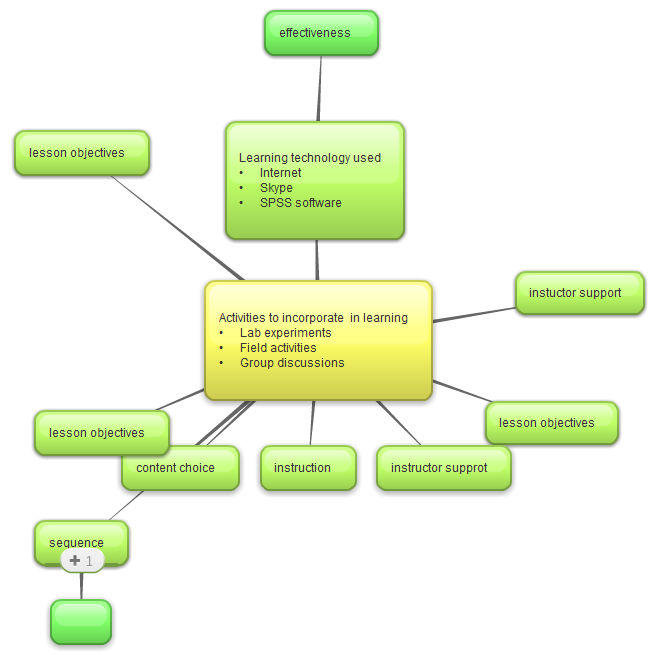Introduction
Instructional design is the usage of a methodical style to provide a solution to an instructional challenge. It starts with the identification of the challenges facing learners and then establishes whether an instructional method provides the most efficient solution (Wagner, 2011).
Such solutions apply appropriate technology and theoretical approach to learning. This essay undertakes an evaluation of the role of instructional design principles and theory on the ability to make rational decisions regarding leadership and learning.
The Influence of Instructional Design Principles and Theory
Leadership is geared towards the conception of ideas for the future, formation of calculated priorities and building an atmosphere of trust between and inside organizations.
Good leadership is a progressive development and requires inspirational influence and the ability to attract a loyal following. Implementation of technology in education, particularly the use of computers and related technology has witnessed rapid growth.
The use of such material penetrates all aspects of human life (Wagner & Ice, 2012). Instructional design principles provide model leadership and education due to their capacity to combine practical and abstract skills as the learners work in cooperation.
When presented in several media and viewpoints, information on instruction is likely to last longer. The instructional designers play an important role in curriculum development as they have the necessary skill-set in educational theory and strategy.
The designers of instructional materials offer institutions with an opportunity for consistency and continuity in the enhancement of courses. An instructional design program aids in the creation of relevant online courses.
Research outlook moved from investigating the constitution of course resources to establishing the cognitive status of the student (Reinventing society in the wake of big data, 2012).
Today’s education is more interested in developing what the student already knows than the makeup of the curriculum. Consequently, technology bridges individual knowledge and formal instruction.
Technology ought to be adequately accommodating to adjust to the learners’ current instructional requirements. Therefore, an effective educator is capable of recognizing and correcting the misconstruction and confusion of his students.
In case of challenges to learning, instruction founded on technology ought to be accommodating and should adjust to the knowledge and life of students.
In a classical sense, learning demands that students devote substantial effort in their undertaking (Reinventing society in the wake of big data, 2012). Since the use of technology improves interaction, this form of instruction boosts learning.
An instructional design system enables learners to reclaim knowledge and acquire new information using interesting and varying instruments. A student who embraces this form of learning system can conduct research and create original material.
In this way, instructional design systems create academic independence and multiple approaches when solving problems. Leadership roles demand that a person should be able to employ quick, critical thinking (Paul & Elder, 2006).
When faced with a dilemma that requires fast and responsible action, a leader must take the first initiative to lead the rest in seeking a solution. Thinking that entails scrutiny, assessment, creativeness and reflection is the forte of instructional design system of learning.
The capacity to provide solutions to difficult problems is an essential requirement of effective leadership. Since leaders face frequent moral dilemmas, effective leaders serve as role models in their behavior.
Effective learning systems ought to enable learners to make good decisions based on critical thinking since issues of morality are all about choice of action. A good learning model, therefore, should build a sense of moral responsibility in learners.
The following is a sample material I generated to reflect how instructional design works. Its color and design help attract and retain the learner’s attention.

Conclusion
Educational institutions and stakeholders should join forces to encourage a culture of effective learning and leadership since technology perpetually alters teaching and learning.
Educational stakeholders are expected to improve the value of education and methods of teaching using instructional design systems to provide an alternative way of teaching and learning that is efficient and fun.
References
Reinventing society in the wake of big data. (2012). Web.
Paul, R., & Elder, L. (2006). Critical thinking: Tools for taking charge of your learning and your life (2nd ed.). Upper Saddle River, NJ: Pearson.
Wagner, E. (2011). Essay: In search of the secret handshakes of ID. The Journal of Applied Instructional Design, 1(1), 33-37.
Wagner, E., & Ice, P. (2012). Data changes everything: Delivering on the promise of learning analytics in higher education. Educause Review, 33-42.